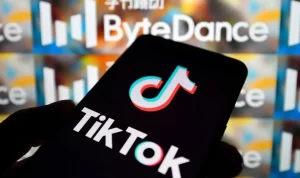
In a rapidly evolving scenario, Chinese officials are reportedly deliberating the sale of TikTok’s U.S. operations to billionaire entrepreneur Elon Musk. This consideration emerges as a contingency plan should the popular video-sharing app face an impending ban in the United States due to national security concerns.
Background: U.S. Regulatory Scrutiny
TikTok, owned by Beijing-based ByteDance Ltd., has been under intense scrutiny by U.S. authorities over allegations that the app could be compelled to share user data with the Chinese government, posing a national security threat. In response, the U.S. Supreme Court is reviewing legislation that could enforce a ban or mandate the divestiture of TikTok’s U.S. operations if these concerns are not adequately addressed.
China’s Strategic Deliberations
While Beijing prefers that TikTok remains under ByteDance’s control, officials are exploring alternative solutions to prevent a complete shutdown of the app in the U.S. One such option includes selling TikTok’s U.S. operations to Elon Musk, who currently owns the social media platform X (formerly Twitter). This move could potentially alleviate U.S. regulatory concerns by placing the app under American ownership.
Potential Sale Dynamics
The discussions are reportedly in preliminary stages, and it remains unclear whether ByteDance or Musk have been directly involved. The sale could proceed through a competitive process or a government arrangement, indicating that ByteDance may lose sole control over TikTok. China holds a “golden share” in ByteDance, granting it influence over TikTok’s operations.
TikTok’s Response
TikTok has dismissed reports of a potential sale to Elon Musk as “pure fiction,” emphasizing that there have been no discussions or plans for such a transaction.
Implications for Users and the Tech Industry
A forced sale or ban of TikTok in the U.S. could significantly impact its approximately 170 million American users who utilize the app for social interaction and economic activities. Additionally, such a move could set a precedent affecting other foreign-owned applications operating in the U.S., potentially reshaping the landscape of digital media and international business relations.
As the situation unfolds, the future of TikTok’s U.S. operations remains uncertain. The outcome will likely depend on ongoing legal proceedings, diplomatic negotiations, and strategic decisions by both ByteDance and U.S. authorities. Stakeholders and users alike are advised to stay informed as new developments emerge in this complex and high-stakes scenario.

